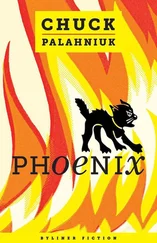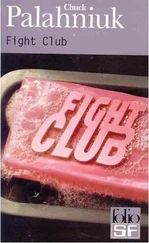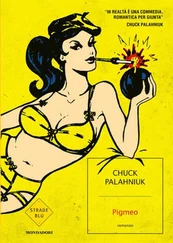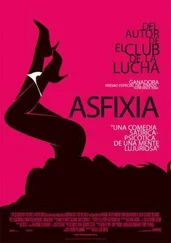This week, there's another miracle in the tabloids.
It's something folks call the Roadkill Jesus Christ. The tabloids call him «The I-84 Messiah.» Some guy who stops along the highway, wherever there's a dead animal, he lays his hands on it, and Amen. The ragged cat or crushed dog, even a deer folded in half by a tractor-trailer, they gasp and sniff the air. They stand on their broken legs and blink their bird-pecked eyes.
Folks have this on video. They have snapshots posted on the Internet.
The cat or porcupine or coyote, it'll stand there another minute, the Roadkill Christ cradling its head in his arms, whispering to it.
Two minutes after it was shredded fur and bones, a meal for magpies and crows, the deer or dog or raccoon will run away complete, restored, perfect.
The Sarge and me, a ways down the highway from us, an old man pulls his pickup truck off the road. He gets out of the cab and lifts a plaid blanket out of the bed of the truck. He squats to lay the blanket on the side of the road, traffic blasting past him in the hot morning air.
The old man picks at the edges of the plaid blanket to uncover a dead dog. A wrinkled heap of brown fur, not too much different than my heap of fur coat.
The Sarge snaps the clip out of his pistol, and it's full of bullets. He snaps the clip back home.
The old man leans down, both his hands flat open on the hot asphalt, cars and trucks blasting past in both directions, and he rubs his cheek against the pile of brown fur.
He stands and looks up and down the highway. He gets back into the cab of his pickup and lights a cigarette. He waits.
The Sarge and I, we wait.
Here we are, a week late. Always one step behind. After the fact.
The first sighting of the Roadkill Christ, it was a crew of state workers shoveling up a dead dog a few miles from here. Before they could get it bagged, a rental car pulled over on the highway shoulder behind them. It was a man and a woman, the man driving. The woman stayed in the car, and the man jumped out and ran up to the road crew. He shouted for them to wait. He said he could help.
The dog was just maggots and bones inside a scrap of fur.
The man was young, blond, with his long blond hair whipping in the wind from cars blasting past them. He had a red goatee and scars cut sideways across both cheeks, just under his eyes. The scars were dark red, and the young man reached into the garbage bag with the dead dog and told the crew—it wasn't dead.
And the road crew laughed. They threw their shovel into their truck.
And something inside the garbage bag whimpered.
It barked.
Now, here and now, while I write this, while the old man waits down the road from us, smoking. The traffic blasting past. On the other side of Interstate 84, a family in a station wagon opens a quilt on the gravel shoulder of the road, and inside is a dead orange cat. A ways from them, a woman and a child sit in lawn chairs next to a hamster on a paper towel.
A ways from them, an older couple stands holding an umbrella to shade a young woman, the young woman bony and twisted sideways in a wheelchair.
The old man, the mother and child, the family and older couple, their eyes scan every car as it goes past.
The Roadkill Christ appears in a different car every time, a two-door or a four-door or a pickup, sometimes on a motorcycle. Once in a motor home.
In the snapshots people take, in the videos, it's always the flying blond hair, the red goatee, the scars. It's always the same man. The outline of a woman waits in the distance in a car, truck, whatever.
While I'm writing this, the Sarge sights down the barrel of his pistol at our pile of fur coat. The ketchup and flies. Our bait. And like everyone else here, we're waiting for a miracle. For a messiah.
Everywhere outside the car it was yellow. Yellow to the horizon. Not a lemon yellow, more a tennis-ball yellow. It was the way the ball looks on a bright green tennis court. The world on both sides of the highway, all this one color.
Yellow.
Billowing, foaming big waves of yellow move in the hot wind from the cars going past, spreading from the highway's gravel shoulder to the yellow hills. Yellow. Throwing yellow light into our car. Helen, Mona, Oyster, me, all of us. Our skin and eyes. The details of the whole world. Yellow.
«Brassica tournefortii,» Oyster says, «Moroccan mustard in full bloom.»
We're in the leather smell of Helen's big Realtor car with her driving. Helen and I sit up front, Oyster and Mona in the back. On the seat between Helen and me is her daily planner book, the red leather binding sticking to the brown leather seat. There's an atlas of the United States. There's a computer printout of cities with libraries that have the poems book. There's Helen's little blue purse, looking green in the yellow light.
«What I'd give to be a Native American,» Mona says, and leans her forehead against the window, «to just be a free Blackfoot or Sioux two hundred years ago, you know, just living in harmony with all that natural beauty.»
To see what Mona's feeling, I put my forehead against my window. Against the air-conditioning, the glass is blazing hot.
Creepy coincidence, but the atlas shows the entire state of California colored this same bright yellow.
And Oyster blows out his nose, one quick snort that rocks his head back. He shakes his face at Mona and says, «No Indian ever lived with that. »
The cowboys didn't have tumbleweeds, he says. It wasn't until the late nineteenth century that tumbleweed seeds, Russian thistles, came over from Eurasia in the wool of sheep. Moroccan mustard came over in the dirt that sailing ships used for ballast. The silver trees out there, those are Russian olives, Elaeagnus augustifolia. The hundreds of white fuzzy rabbit ears growing along the highway shoulder areVerbascum thapsus, woolly mulleins. The twisted dark trees we just passed,Robinia pseudoacacia, black locust. The dark green brush flowering bright yellow is Scotch broom,Cytisus scoparius.
They're all part of a biological pandemic, he says.
«Those old Hollywood westerns,» Oyster says, looking out the window at Nevada next to the highway, he says, «with the tumbleweeds and cheatgrass and shit?» He shakes his head and says, «None of this is native, but it's all we have left.» He says, «Almost nothing in nature is natural anymore.»
Oyster kicks the back of the front seat and says, «Hey, Dad. What's the big daily newspaper in Nevada?»
Reno or Vegas? I say.
And looking out the window, the reflected light making his eyes yellow, Oyster says, «Both. Carson City, too. All of them.»
And I tell him.
The forests along the West Coast are choked with Scotch broom and French broom and English ivy and Himalayan blackberries, he says. The native trees are dying from the gypsy moths imported in 1860 by Leopold Trouvelot, who wanted to breed them for silk. The deserts and prairies are choked with mustard and cheatgrass and European beach grass.
Oyster fingers open the buttons on his shirt, and inside, against the skin of his chest, is a beaded something. It's the size of a wallet, hanging around his neck from a beaded string. «Hopi medicine bag,» he says. «Pretty spiritual, huh?»
Helen, looking at him in the rearview mirror, her hands on the steering wheel in skintight calfskin driving gloves, she says, «Nice abs.»
Oyster shrugs his shirt off his shoulders and the beaded bag hangs between his nipples, his chest pumped up on each side of it. The skin's tanned and hairless down to his navel. The bag's covered solid with blue beads except for a cross of red beads in the center. His tan looks orange in the yellow light. His blond hair looks on fire.
Читать дальше




